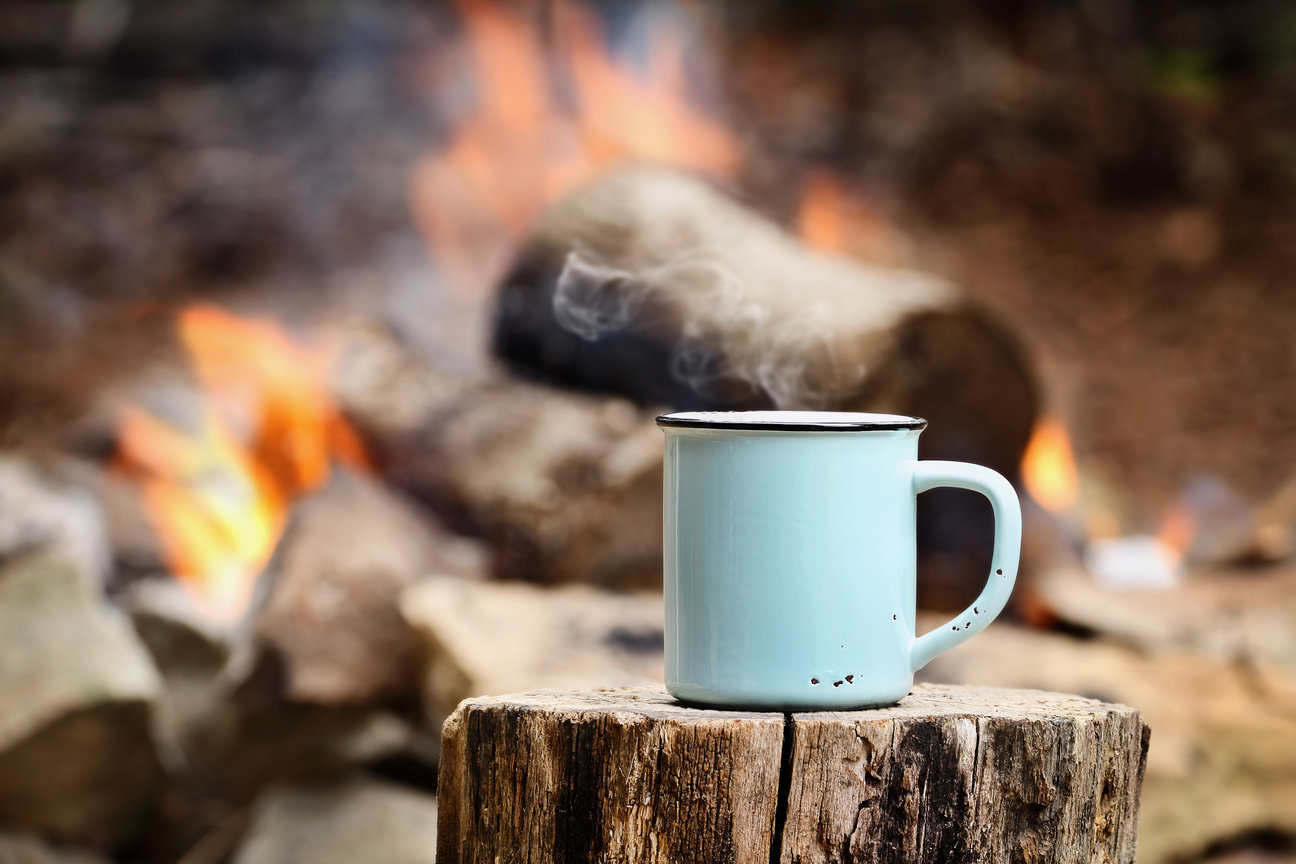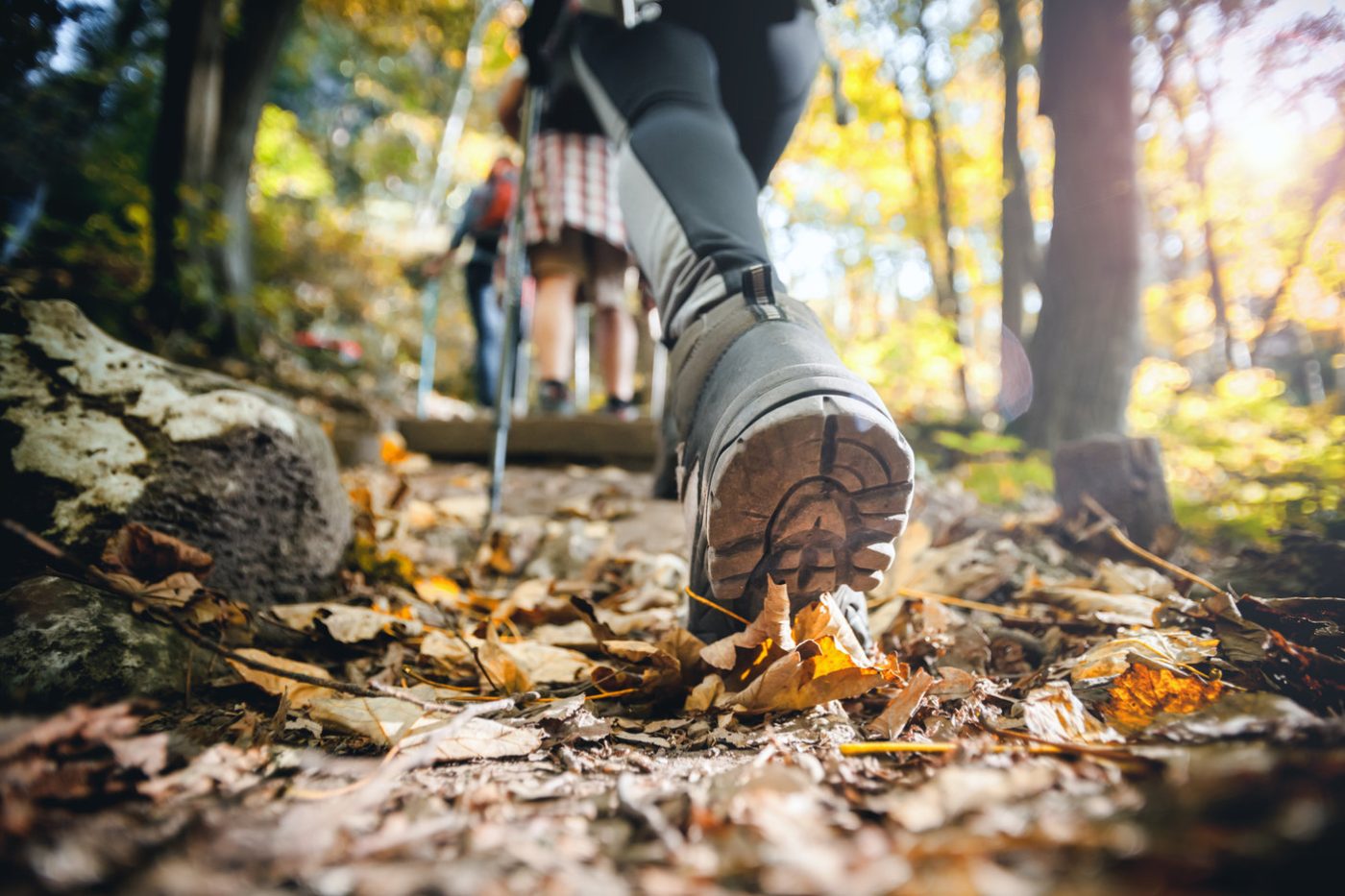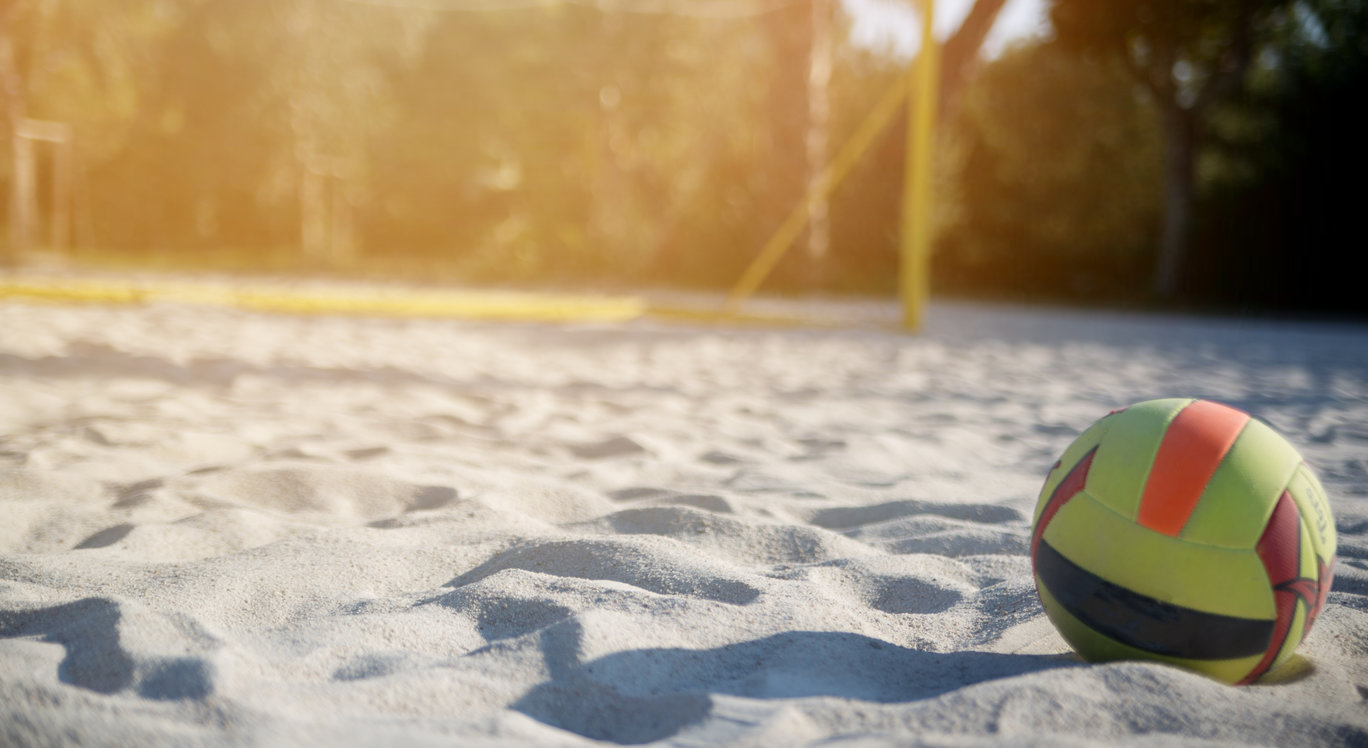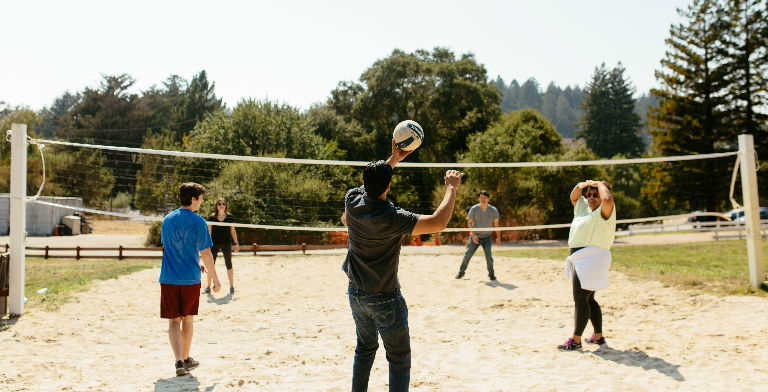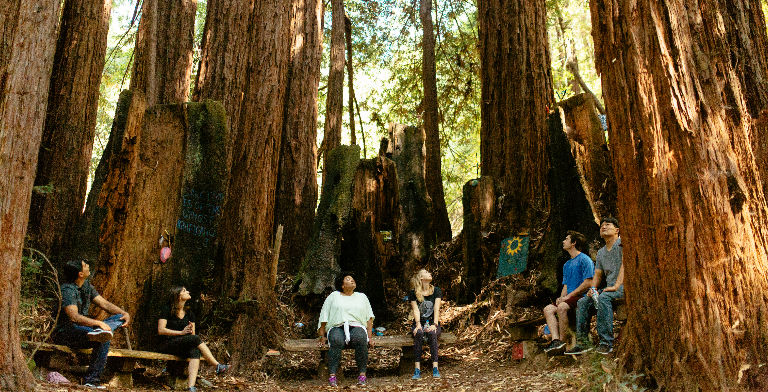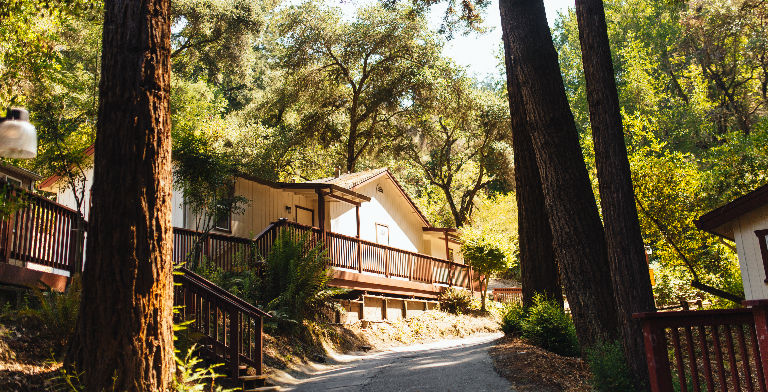The Camp Recovery Center helps adolescents & adults struggling with addiction & co-occurring PTSD find long-term recovery. Located near Scotts Valley & San Jose, CA, The Camp provides premier substance abuse rehabilitation & PTSD treatment.
PTSD Treatment
PTSD Treatment Near Santa Cruz & San Jose
Posttraumatic stress disorder, also known as PTSD, is a serious mental health condition that results after a person experiences, witnesses, or learns about a trauma or traumatic event. Depending on the severity of the precipitating trauma, the symptoms that emerge after the trauma or traumas can prevent an individual from living a healthy and well-functioning life. Failing to seek treatment for this type of mental illness can cause sufferers to resort to unhealthy and even dangerous behaviors as means of coping with their turmoil. For example, substance abuse is common among those with untreated posttraumatic stress disorder, as individuals who are battling this illness often find false solace in the mental escape that drugs and alcohol provide. Couple the distress caused by PTSD with chemical dependency and the resulting effects can be devastating.
At The Camp Recovery Center, we understand the many ways in which posttraumatic stress disorder can affect a person’s functioning when symptoms are left untreated. We also understand the complex nature of treating this type of mental health condition when a substance use disorder is present at the same time. For these reasons, we are pleased to offer the life-saving rehab that has helped thousands of men, women, and adolescents manage PTSD symptoms and recover from addictions to drugs and alcohol. Through the use of proven effective treatment methods and an unparalleled dedication to improving the lives of people battling substance abuse problems and co-occurring mental health conditions, The Camp Recovery Center is where people of all ages can embark on a truly transformative rehab journey and achieve the healthy, drug-free lives they deserve.
Helping a Loved One
Helping a Loved One or Family Member Enter PTSD Treatment
Concerned friends and family members of a person grappling with posttraumatic stress disorder and a substance abuse problem often oscillate between a wide range of emotions. Anger, fear, sadness, and worry frequently overwhelm those closest to someone with these types of issues that may leave them wondering what they can do to help the person they care about.
As a friend or family members, there are some steps that can be taken to help your loved one:
- Learn all that you can about PTSD and addiction, including how they impact a person both separately and when occurring in tandem.
- Talk with your loved one about his or her current struggle and be open to hearing what he or she has to say.
- Offer to assist your loved one in researching rehab centers and providers who can supply the treatment needed to heal and recover from his or her presenting concerns.
- Be supportive of your loved one during this difficult time and encourage him or her top engage with a treatment center.
Once your loved one has made the brave step to partake in rehab, it is important that you remain a source of support throughout the therapeutic process. It is also beneficial for you, as a concerned friend or family member, to do the following:
- Consult with your loved one’s rehab center or treatment provider to learn what you can do to be of assistance while your loved one focuses on his or her recovery.
- Be part of family sessions or support opportunities supplied by your loved one’s treatment provider or rehab center.
- Seek your own counseling as a means of caring for yourself, as your loved one’s addiction has likely impact you as well.
Why Consider Us?
Why Consider PTSD Treatment at The Camp Recovery Center, Located Near San Jose & Santa Cruz, CA
Battling an addiction and posttraumatic stress disorder at the same time can create of whirlwind of adverse effects in an individual’s life if rehab is not sought. In many cases, substance abuse can worsen the symptoms of PTSD and vice versa. Grappling with these two issues long-term can, unfortunately, result in declined physical health, a high risk for overdose, deteriorating mental acuity, and the onset of self-harming behaviors, suicidal ideation, and even suicide attempts. Furthermore, relationships could begin to suffer should that individual come to neglect responsibilities at school, work, or home, or if financial difficulties arise due to employment instability or poor decision-making. Sadly, many individuals who fail to seek care for an addiction and PTSD are at a greater risk for homelessness and interaction with the legal system, of which can both be due to a hindered ability to make healthy decisions when living with these two conditions. Fortunately, however, these consequences and adversities can be successfully avoided by seeking treatment. By receiving care for an addiction and PTSD, those who were once afflicted by these challenges can resume a life that is healthy and happy.
Types of Treatment
Types of PTSD Treatment Offered at The Camp Recovery Center
Since we first opened our doors in 1984, The Camp Recovery Center has remained steadfast in its dedication to offering superior chemical dependency and dual diagnosis rehab for adolescents, men, and women. We are situated on 25 serene acres amidst the towering redwoods of the Santa Cruz Mountains and supply a treatment experience that can only be described as life-changing. In addition to walking trails, tennis, volleyball, and basketball courts, and a swimming pool, our center features a wide range of therapeutic interventions that are proven to help people truly recover from addictions to drugs and/or alcohol. Our nationally accredited residential treatment center focuses on healing each resident’s mind, body, and spirit so that treatment goals are not only achieved, but exceeded.
As part of our comprehensive programming, we offer a specialty treatment track for individuals who are struggling with addiction and co-occurring disorders, including PTSD. The staff of highly trained professionals, which includes nurses, addiction counselors, therapists, and drug rehabilitation professionals, works closely with residents to formulate individualized rehab plans that can include the following treatment methods:
Detoxification: Individuals who come to The Camp Recovery Center with drugs and/or alcohol in their systems may require detox in order to partake in rehab with a clear mindset. When this is the case, we utilize an offsite doctor to determine the most effective and appropriate detox protocol that will benefit each resident most.
Medication management: Those battling PTSD may require the use of certain medications in order to alleviate the distressing symptoms that are cornerstone to these types of mental health conditions. During the assessment phase of the admissions process, it will be preliminary determined if medication management services will be required as part of a resident’s treatment plan. Should such services be deemed necessary, residents will be able to meet with a psychiatrist once per week so that medications can be prescribed, monitored, or altered depending upon the resident’s unique medication needs.
Individual therapy: A great deal of progress can be made when an individual is able to process feelings, emotions, triumphs, and setbacks within the confines of a one-on-one therapeutic relationship. At The Camp Recovery Center, resident struggling with PTSD and addiction are able to meet with case managers twice each week in order to receive personalized attention that can ultimately further the treatment and recovery processes.
Group therapy: Therapy held in a group format is an integral part of the PTSD and addiction care supplied by our treatment center. Each resident will engage in process groups with case managers 5 days per week, along with other groups that are offered 7 days per week. The various topics that may be covered during these groups can include discussions on relapse prevention, 12-Step Recovery, SMART Recovery, and self-helping thinking. The following are among the specific groups that residents can partake in while receiving treatment with us:
- Age Groups
- Music / Poetry Groups
- Focus Groups
- Men’s Group
- Women’s Group
- Detox Groups
- Experiential Group
- Activity Group
- CBT Groups
Family therapy: Recognizing the value of including those closest to our residents in the PTSD and addiction recovery process, we offer family therapy sessions 2 times per month. These sessions are led by marriage and family therapists and help our residents repair and rebuild relationships with their primary support networks.
Experiential therapy: Our rehab center includes various experiential therapies in order to provide a truly unique treatment experience. These therapies are offered weekly and can include the following:
- Meditation
- Various games
- Time set aside to use the gym
- Acupuncture
- Yoga
Community meetings: Taking place every morning of every day of the week, community meetings are led by our residents and allow them to discuss the day’s agenda, talk about topics related to them as a group, and share insights about treatment. This facet of rehab is extremely important, as we believe meetings of this kind foster lasting sober relationships between residents that can be maintained long after they have left our treatment center.
In addition to the above treatment methods, residents will also work hand-in-hand with our staff to formulate thorough discharge and aftercare plans to prepare them for when they have completed rehab with us. From the time a resident is admitted to The Camp Recovery Center, case managers collaborate with residents to determine if our intensive outpatient program (IOP) or another type of post-treatment care option will be needed after completing our residential treatment.
We will put forth every effort to ensure that our residents can remain successful in their recovery journeys. If you or a loved one is caught in the grips of an addiction, while also battling posttraumatic stress disorder or another mental illness, look no further than The Camp Recovery Center. The start to a healthy, happy, drug-free future can begin at our rehab center.








